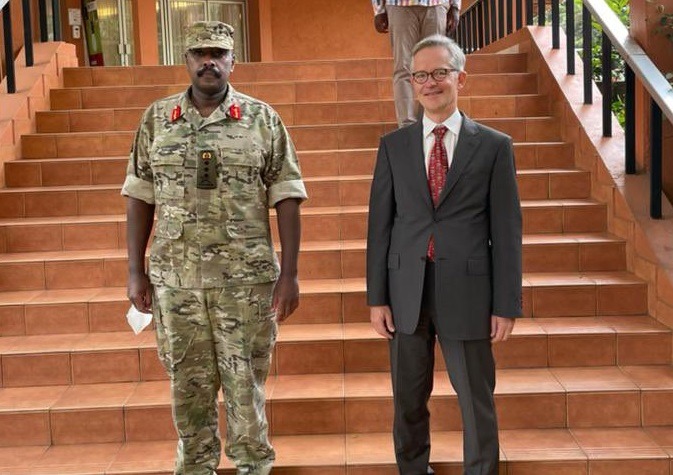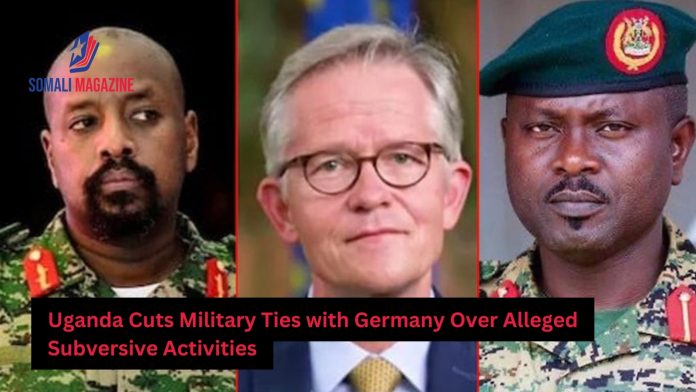Facebook Twitter (X) Instagram Somali Magazine - People's Magazine
Uganda has abruptly suspended all military cooperation with Germany, citing alleged subversive activities by Berlin’s top envoy in Kampala. The Uganda People’s Defence Forces (UPDF) announced the decision on Sunday, escalating diplomatic tensions between the two nations.
The controversy centers on German Ambassador Mathias Schauer, whom Ugandan authorities accuse of interfering in the country’s internal affairs and supporting groups opposed to the government ahead of next year’s general elections. UPDF spokesperson Colonel Chris Magezi stated that the suspension was based on “credible intelligence reports” implicating Schauer in activities deemed hostile to Uganda’s security interests.
The move follows a closed-door meeting in Gulu between veteran Ugandan military figure Gen Salim Saleh and European diplomats, during which Schauer reportedly criticized the conduct of Gen Muhoozi Kainerugaba, Uganda’s military chief and son of President Yoweri Museveni. Schauer allegedly warned that Muhoozi’s social media posts were causing “reputational damage” to Uganda and urged senior officials to publicly disavow them.

Uganda’s military leadership has framed the decision as a necessary step to protect national sovereignty, but critics argue that it reflects growing unease over Western diplomatic engagement. Opposition leader Robert Kyagulanyi, popularly known as Bobi Wine, dismissed the allegations against Schauer as an attempt to criminalize dissent. “They have stated that most of those so-called rebels are supporters of NUP!” he wrote on social media, referring to his National Unity Platform party.
The suspension of military ties marks one of the most serious diplomatic rifts between Uganda and a European power in recent memory. Germany has been a key partner in Uganda’s defense sector, providing logistical assistance, joint training programs, and strategic advisory missions. Analysts warn that the breakdown in relations could impact Uganda’s military operations, particularly its role in the African Union peacekeeping mission in Somalia, which receives funding from the European Union.
Uganda has previously cautioned foreign missions against interfering in its internal affairs, and the latest move signals a hardening of that stance. Security operatives have reportedly increased monitoring of foreign-funded activities linked to youth mobilization, civic activism, and unofficial military training exercises.
The German Embassy in Kampala has yet to issue an official response, but diplomatic sources indicate that Berlin is assessing the situation before making a formal statement. The fallout from Uganda’s decision will likely shape future engagements between the two nations, with broader implications for Western diplomatic relations in East Africa.

